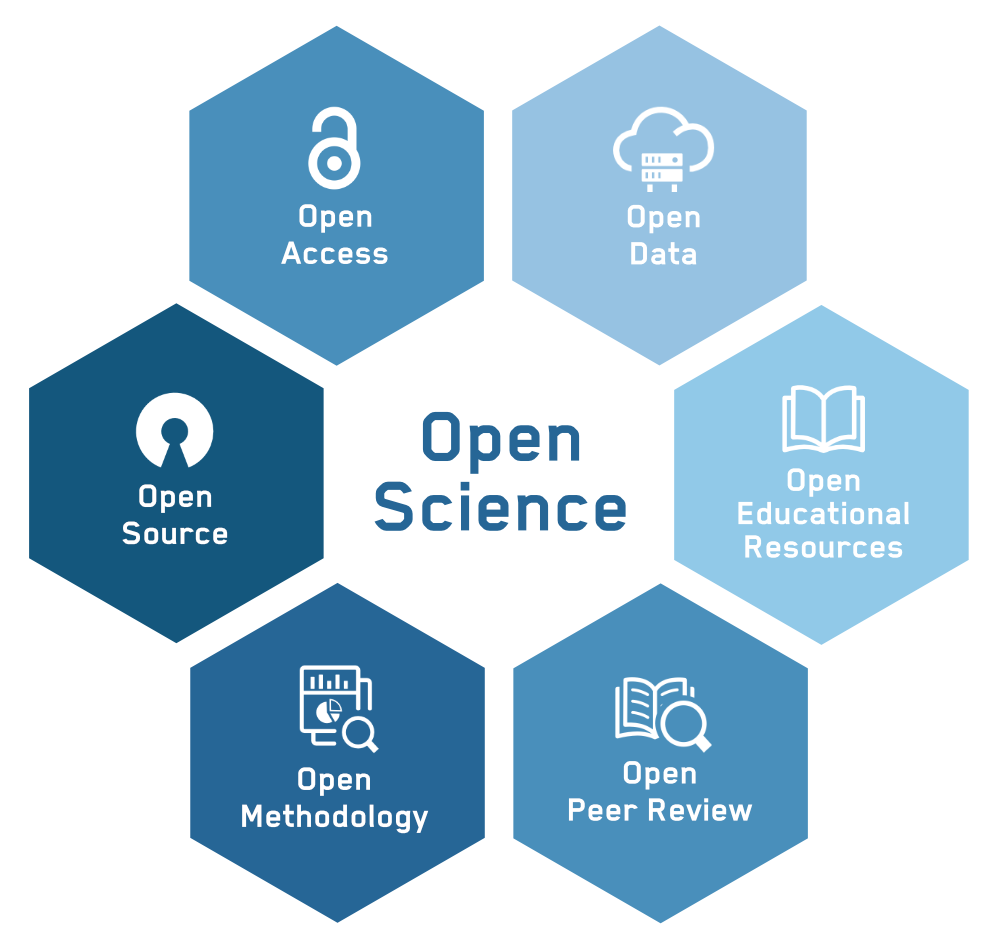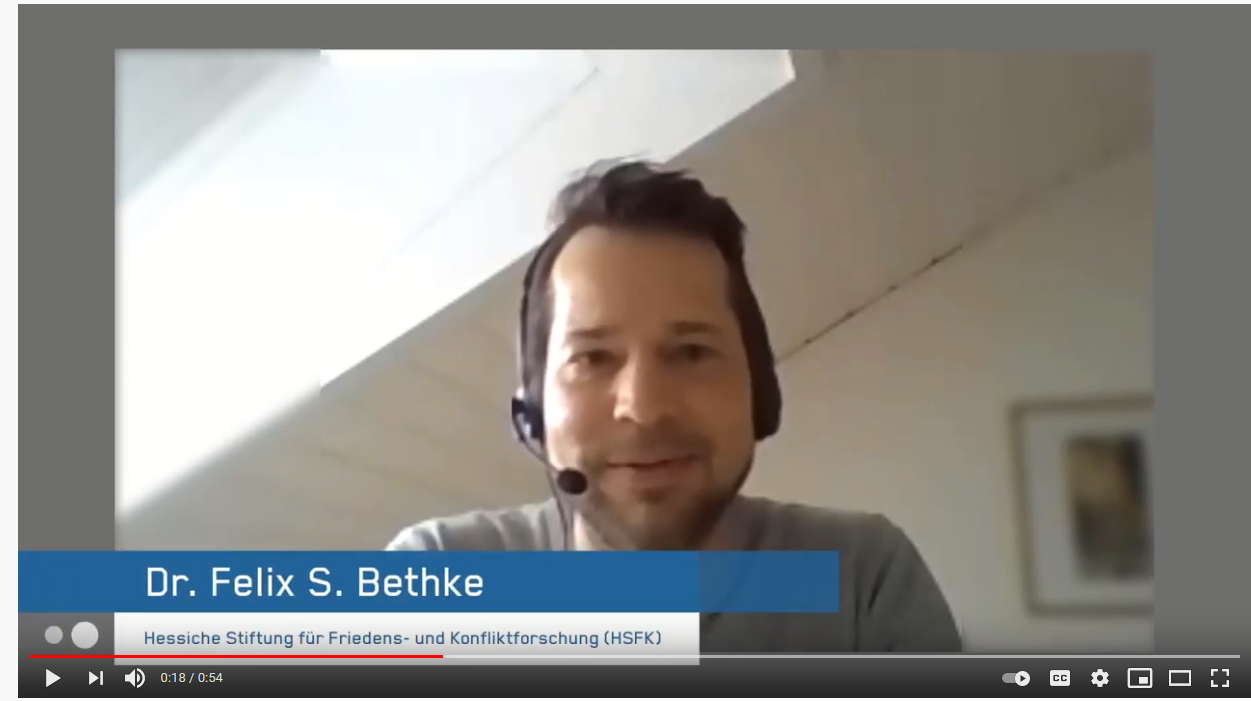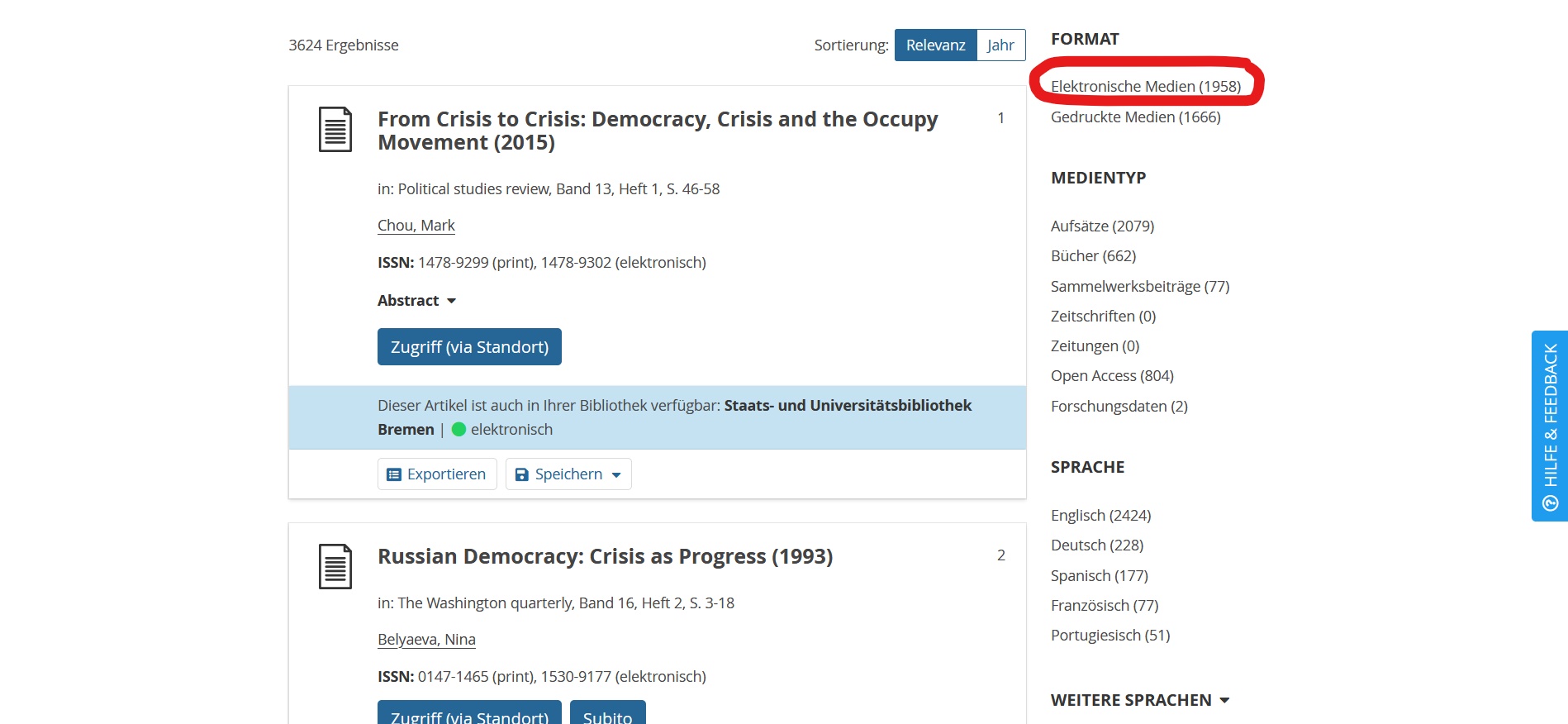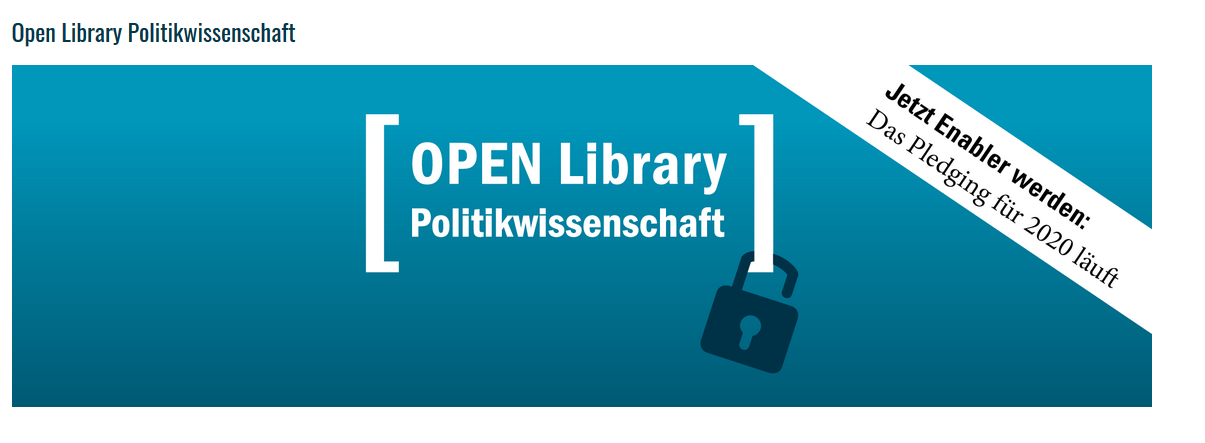Kontakt
Sprechen Sie uns gerne an
5. Januar 2026
Pollux bietet Politikwissenschaftler:innen in Deutschland seit einigen Jahren einen kostenfreien Zugriff auf die Politikmonitoring und -analysedatenbank Polit-X. Nun gibt es eine neue Datenbank: Komm-X. Komm-X agiert auf der Ebene der Gemeinden. Mit diesem Tool lassen sich die Veröffentlichungen seitens der Kommunen, Landkreise und kreisfreien Städte monitoren. Häufig werden politische Prozesse auf kommunaler Ebene ausgeführt und umgesetzt.
4. Januar 2026
 |
Am 10. Februar 2026, 11 Uhr bieten wir ein PoliCorp Webinar mit diesen Themen an:
Die Veranstaltung richtet sich an Forschende, Studierende und alle, die an politischer Textanalyse interessiert sind. Das Webinar wird auf Englisch durchgeführt, die Teilnahme ist kostenlos.
Anmeldung: https://uni-bremen.zoom-x.de/meeting/register/gsHVnPevQoSQqs3cNFw4rg
18. Dezember 2025
"Wissen ist das einzige Gut, das sich vermehrt, wenn man es teilt."
Marie von Ebner-Eschenbach (1830-1916)
Der funkelnde Diamant steht für unseren neuen Schwerpunkt: Diamond Open Access. Für das gemeinsame Ziel, Wissen frei, nachhaltig und in öffentlicher Verantwortung zugänglich zu machen.
Was wir teilen, wächst: Die politikwissenschaftliche Forschung lebt von Offenheit, Austausch und verlässlichen, unabhängigen Publikationswegen. In diesem Geist möchten wir uns für die vertrauensvolle Zusammenarbeit bedanken und freuen uns auf das, was kommt.
3. November 2025
Pollux bietet Politikwissenschaftler:innen in Deutschland seit einigen Jahren einen kostenfreien Zugriff auf die Politikmonitoring und -analysedatenbank Polit-X. Nun gibt es eine neue Datenbank: Komm-X. Komm-X agiert auf der Ebene der Gemeinden. Mit diesem Tool lassen sich die Veröffentlichungen seitens der Kommunen, Landkreise und kreisfreien Städte monitoren.
10. Oktober 2025
 |
In Zusammenarbeit mit Polit-X bieten wir am 21. Oktober 2025 wieder ein 45 minütiges Webinar zur Einführung in Polit-X an.
Gezeigt werden die Suche in Millionen tagesaktuellen politischen Dokumenten auf Bundes-, Landes- und Europaebene sowie die Analysemöglichkeiten politischer Themen, Prozessverfolgungen und die Anwendung von KI. Zum Ende des Webinars bleibt genügend Zeit für Ihre Fragen. Wir von Pollux und Polit-X freuen uns auf Ihre Teilnahme!
Registrieren Sie sich gern über den folgenden Link: https://us06web.zoom.us/meeting/register/Oh0jwhZURgCf_pI96QeKiQ#/registration
Die Teilnahme ist kostenlos. Für die Nutzung von Polit-X benötigen Sie ein PLUS-Konto bei Pollux.
6. Oktober 2025
Dienstag, 7.10., 11-12 Uhr, bieten wir ein Webinar zu PoliCorp an.
Anmeldung unter: https://uni-bremen.zoom.us/meeting/register/tj47F9AQRtWwsnFVfcxPmw#/registration
Die Teilnahme ist kostenlos.
Pollux Political Corpora - PoliCorp bietet Forschenden einen strukturierten und durchsuchbaren Zugang zu verarbeiteten Textkorpora. PoliCorp enthält derzeit eine Sammlung von Transkripten von Bundestagsdebatten (GermaParl), die 76 Jahre parlamentarische Debatten abdeckt - von September 1949 bis Juli 2025. Die Integration weiterer Quellen (z.B. StateParl) ist in Arbeit. Eine Demoversion von PoliCorp ist unter https://demo-pollux.gesis.org/ verfügbar.
Das Webinar wird folgende Themen behandeln: Zugang zu und Arbeit mit offenen Korpora in PoliCorp Hauptfunktionen und Anwendungsfälle von PoliCorp Praktische Demonstrationen für Forschung und Analyse Die Veranstaltung richtet sich an Forschende, Studierende und alle, die an politischer Textanalyse interessiert sind, und findet in englischer Sprache statt.
26. September 2025
Webinar, 30.9.2025, 13-14 Uhr
Open Peer Review gilt als vielversprechender Weg zu mehr Transparenz, Dialog und Qualität im wissenschaftlichen Publikationsprozess. Besonders rund um Preprints entstehen neue Formate und Infrastrukturen, die die herkömmliche Trennung zwischen Begutachtung und Veröffentlichung auflösen. In diesem Webinar wird diskutiert, welche Chancen offene Reviews für Autor:innen, Reviewer:innen und Forschende bieten und wie sich diese jenseits klassischer Journals umsetzen lassen. Anhand aktueller Entwicklungen und Praxisbeispiele wird gezeigt, wie Open Review von Preprints konkret funktioniert, welche Herausforderungen bestehen und wie eine stärkere Anerkennung offener Begutachtung gelingen kann.
Das Webinar richtet sich an alle Politikwissenschaftler:innen, die sich für transparente Peer-Review-Verfahren jenseits traditioneller Journals interessieren.
Anmeldung: https://uni-koeln.zoom.us/meeting/register/I2derh9vSFaDhEhHJ_I76A#/registration
Die Teilnahme ist kostenlos.
23. September 2025
In die Pollux-Suche sind seit Kurzem Referenzen und Zitationen eingebunden. Was genau bedeutet das?
22. August 2025
Ab sofort können Sie Ihre in Pollux gespeicherten Literaturlisten veröffentlichen und/oder mit anderen Personen teilen und gemeinsam bearbeiten. Eingeladene Personen benötigen lediglich ein Pollux-Konto (Standard oder PLUS), damit sie an einer Literaturliste teilnehmen können.
10. Juli 2025
Wir freuen uns sehr!
Nach drei erfolgreichen Förderphasen (2016ff) hat die DFG unseren Fortsetzungsantrag vollumfänglich bewilligt. Damit wird der FID Politikwissenschaft für weitere drei Jahre mit einer Summe von insg. 1,9 Mio. EUR gefördert. Weitere Informationen finden Sie in der Pressemitteilung.
8. Mai 2025

Pollux bietet nun fachspezifische Webinare und Online-Workshops rund um die Open-Science-Themen
an.
Die Veranstaltungen richten sich an alle politikwissenschaftlich Forschenden. Die Teilnahme ist kostenlos.
13. Januar 2025
Pollux bietet Forschenden auf einer neuen experimentellen Plattform - Pollux Political Corpora (PoliCorp) eine einfache Möglichkeit, umfangreiche politische Textsammlungen (Korpora) strukturiert zu durchsuchen und zu analysieren.
Aktuell enthält PoliCorp Daten aus dem GermaParl-Korpus, einer Sammlung der Protokolle der Bundestagsdebatten. Diese umfassen 72 Jahre parlamentarische Diskussionen – von 1949 bis 2021 – und beinhalten über 958.000 Redebeiträge.
PoliCorp richtet sich an Forschende der Politikwissenschaft und anderer Disziplinen. Mit der benutzerfreundlichen Web-Oberfläche lassen sich die Daten gezielt durchsuchen. Die aktuelle Version der Plattform ermöglicht es den Forschenden, stichwortbasierte Suchen im Korpus durchzuführen. Dabei können mehrere Suchfelder kombiniert und logische Filter eingesetzt werden. Forschende können ausgewählte Datensätze kostenlos im JSON-Format herunterladen und für weiterführende Analysen nutzen. Künftige Ergänzungen werden erweiterte Suchfunktionen (z. B. Suche nach Synonymen, Themen usw.) und integrierte Datenanalysefunktionen umfassen.
Die Beta-Version von PoliCorp kann hier getestet werden: https://demo-pollux.gesis.org/
Update 19.3.2025
Eine ausführliche Beschreibung ist jetzt im DVPW-Blog erschienen https://www.dvpw.de/blog/einfache-suche-in
16. Oktober 2024
Im Rahmen der diesjährigen Open-Access-Week (21.10.- 25.10.2024) veranstalten wir gemeinsam mit der SuUB Bremen eine Coffee Lecture mit Prof. Dr. Paul Klimpel von der Kanzlei iRights Law zum Thema rechtliche Fragestellungen in Hinblick auf Open-Access-Zweitveröffentlichungen.
Die Coffee-Lecture findet via Zoom statt am Montag, 21.10.2024, 12-12:30 Uhr inklusive Diskussions- und Fragerunde.
Meeting-ID: 669 8224 5956
Kenncode: Bremen
2. Oktober 2024
Während des DVPW-Kongresses in Göttingen konnten alle Teilnehmenden den politikwissenschaftlichen Forschungsblog des Jahres 2024 wählen. In einer ersten Online-Runde haben es vier Blogs in die zweite Runde geschafft: Politik & Ökonomie, Theorieblog, Über Politik aus der Wissenschaft und der DVPW-Blog.
Der Theorieblog, das Forum für Politische Theorie, Ideengeschichte und Politische Philosophie, konnte nach 2021 erneut die Wahl für sich gewinnen. Mit nur vier Stimmen weniger schaffte es "Über Politik aus der Wissenschaft" der Arbeitsgruppe für Empirische Politikwissenschaft von der Universität Duisburg-Essen auf Platz zwei. Wir gratulieren beiden herzlich zu diesem Erfolg!
3. September 2024
Wie bereits beim DVPW-Kongress 2021 können Sie wieder abstimmen, welcher politikwissenschaftliche Blog zum „Forschungsblog des Jahres“ gewählt werden soll.
Das Wahlverfahren läuft diesmal zweistufig:
Der Gewinner wird am Donnerstagabend bekanntgegeben.
31. Mai 2024
Die Forschungsinfrastrukturförderung in Deutschland ist, wie die Forschungsförderung insgesamt, stark auf Projekte orientiert und von Drittmitteln abhängig. Diese Konstellation birgt einerseits Potenziale, zum Beispiel für technische Innovationen zur Anpassung an den digitalen Wandel. Andererseits bringt diese Ausgangslage auch Probleme mit sich, vor allem im Hinblick auf einen nachhaltigen Betrieb der Forschungsinfrastruktureinrichtungen und die großen Herausforderungen von Open Science. Der vorliegende Beitrag beleuchtet diese Konstellation anhand des Beispiels des DFG-geförderten Fachinformationsdienstes (FID) Politikwissenschaft – Pollux und fragt danach, welche Rolle Forschende für die Weiterentwicklung der Forschungsinfrastruktur spielen können.
Czolkoß-Hettwer, M., Lein, P. & Mayr, P. Probleme und Potenziale der Forschungsinfrastrukturförderung in Deutschland am Beispiel des Fachinformationsdienstes Politikwissenschaft. Z Politikwiss 34, 101–122 (2024)
Open Access: https://link.springer.com/article/10.1007/s41358-024-00371-z
3. Mai 2024
Unsere Online-Umfrage konnte erfolgreich beendet werden. Wir danken allen, die den Link weitergeleitet haben und allen, die daran teilgenommen haben für ihre Unterstützung. Wir werden jetzt erste Auswertungen vornehmen und die Ergebnisse inklusive unserer daraus hervorgegangenen Maßnahmen Open Access publizieren.
Vielen Dank!
23. April 2024
Ihr Feedback ist wichtig! Denn wir entwickeln Pollux ganz nach Ihren Bedarfen weiter.
Bis zum 30. April können Sie noch an unserer Umfrage teilnehmen:
https://www.pollux-fid.de/surveys/pollux-general-survey-2024
Die Umfrage dauert ca. 10 Minuten. Es werden keine personenbezogenen Daten erhoben.
Herzlichen Dank für Ihre Unterstützung!
9. April 2024
Noch bis zum 23. April 2024 läuft unsere Onlinebefragung mit der die Bedarfe der politikwissenschaftlichen Fachcommunity und die Zufriedenheit mit dem Angebot von Pollux erhoben werden sollen.
Ihre Rückmeldung ist wichtig!
Bitte nehmen Sie sich einen Moment Zeit, um Ihre Erfahrungen und Perspektiven in den Bereichen Literaturrecherche, Forschungsmethoden und Open Science sowie Wissenschaftskommunikation mit uns zu teilen. Ihre Meinung ist essentiell für die Weiterentwicklung von Pollux und somit auch der forschungsunterstützenden Services für Sie – die politikwissenschaftlich Forschenden.
Die Umfrage dauert ca. 10-15 Minuten. Es werden keine personenbezogenen Daten erhoben. Wir freuen uns über Ihre Unterstützung!
Hier geht es zur Umfrage: https://www.pollux-fid.de/surveys/pollux-general-survey-2024
8. April 2024
Wir suchen zum nächstmöglichen Zeitpunkt zwei studentische Hilfskräfte (SHK). Euch erwarten vielfältige Aufgaben in unserem netten Team bei flexiblen Gestaltungsmöglichkeiten. Die Vertragslaufzeit ist zunächst geplant bis zum 30. September 2025.
Eine SHK-Ausschreibung richtet sich an Studierende der Politikwissenschaft. Eine weitere SHK-Ausschreibung richtet sich an Studierende der Informatik.
25. Januar 2024
von Paula Lein
Qualitative politikwissenschaftliche Forschungsdaten sind in der Regel sensibel und basieren oftmals auf einem engen Vertrauensverhältnis zwischen Forschenden und Forschungsteilnehmenden. Zugleich sind diese Forschungsdaten aber reichhaltig, einzigartig und entstehen häufig in schwer zugänglichen Forschungsfeldern, weshalb sie besonders wertvolle Datenschätze darstellen. Um das Teilen von Daten zu ermöglichen und gleichzeitig Forschungsteilnehmende ausreichend zu schützen, sind daher hohe Anforderungen an die Archivierung dieser Forschungsdaten und spezielle Schutzvorkehrungen notwendig. Das Forschungsdatenzentrum Qualiservice stellt für solche hochsensiblen Forschungsdaten eine angemessene Archivierungsumgebung bereit.
Den ganzen Artikel finden Sie im DVPW-Blog
8. November 2023
Wir bieten Donnerstag, 9.11. und Dienstag, 14.11.2023, jeweils um 13 Uhr eine 15 minütige virtuelle Tour durch Pollux an. Danach ist Zeit für Fragen.
Teilnahmelink: https://uni-bremen.zoom-x.de/j/61566642449?pwd=bnk1OWdWTlI1ZGlsSVhGemlXMk04QT09
Eine Anmeldung ist nicht erforderlich. Wir freuen uns auf Sie!
8. November 2023
So lautet der Titel unseres neuen Blogbeitrags, in dem wir erläutern, warum Forschende Mastodon als Alternative zu anderen Social-Media-Plattformen in Betracht ziehen sollten.
Hier geht es direkt zum Blogbeitrag.
Austausch über die Frage, wo es "nach Twitter/X" weiteregehen kann, ist sowohl bei Mastodon als auch bei Twitter/X möglich.
Wir sind sehr an Feedback aus der politikwissenschaftlichen Fachcommunity interessiert!
22. September 2023
Wir freuen uns, als offizieller Unterstützer dabei zu sein beim internationalen Kongress "Politische Theorie in Zeiten der Ungewissheit", der an der Universität Bremen ausgerichtet wird (27. bis 29. September 2023). Zusammen mit unserem Projektpartner Qualiservice (Forschungsdatenzentrum für qualitative sozialwissenschaftliche Forschungsdaten) werden wir an einem Stand (im Atlantic Hotel Universum) über unsere Services informieren.
Der Kongress wird im Rahmen der Sektion für Politische Theorie und Ideengeschichte der Deutschen Vereinigung für Politikwissenschaft (DVPW) veranstaltet.
24. Juli 2023
Wir haben eine eigene Rubrik im DVPW-Blog. Dort berichten wir regelmäßig von neuen Angeboten und Entwicklungen aus dem FID Politikwissenschaft.
Der erste Beitrag ist heute erschienen. Dort dreht sich alles um Beiträge aus politikwissenschaftlichen Forschungsblogs, denn seit Kurzem sind über 350 deutsch- und englischsprachige Forschungsblogs über die Pollux-Literatursuche auffindbar.
Abb. Beispielsuche mit Filtermöglichkeiten
Damit umfasst Pollux jetzt alle wichtigen wissenschaftlichen Publikationsformen (vgl. Stykow) und unsere Nutzer:innen können somit zu aktuellen politischen bzw. politikwissenschaftlichen Themen fundierte Beiträge recherchieren. Der Vorteil der Schnelligkeit kann dabei zugleich allerdings auch ein Nachteil sein, da bei Blog-Veröffentlichungen in aller Regel weniger sorgfältige (oder gar keine) Review-Prozesse durchlaufen werden. Insgesamt haben Forschungsblogs aber einen wachsenden Stellenwert in der Wissenschaftskommunikation.
Die Blogauswahl wird kontinuierlich ergänzt und angepasst. Vorschläge für weitere politikwissenschaftliche Blogs in deutscher und englischer Sprache können sehr gern eingereicht werden über https://www.pollux-fid.de/contact oder per Mail an kontakt@pollux-fid.de.
Wir danken der DVPW für diese tolle Kooperation und die damit geschaffene Möglichkeit, über den Blog der Fachgesellschaft die politikwissenschaftlich Forschenden über Themen aus den Bereichen Literaturrecherche, Open Access, Forschungsdatenmanagement, Wissenschaftskommunikation und mehr informieren zu können.
27. April 2023
Ab sofort haben registrierte Politikwissenschaftler:innen direkt über Pollux freien Zugriff auf den kostenpflichtigen Politikmonitoring- und Analysedienst Polit-X. Polit-X enthält Millionen aktuelle und historische politische Dokumente und Inhalte aus Bund, Bundesländern und Europa und bietet umfangreiche digitale Politikanalyse-Tools.
Die Nutzung von Polit-X über Pollux ist denkbar einfach. Anwender:innen mit einem Konto für Politikwissenschaftler:innen (PLUS Konto) brauchen sich nur bei Pollux einloggen und können dann mit einem einfachen Klick zu Polit-X gelangen. Beliebte Funktionen wie Alerts (automatisiert und per E-Mail) zu neuen Dokumenten, der umfangreiche Vorgangsmonitor des Bundestages und Bundesrates, der Abgeordnetenmonitor oder die anderen weitergehenden Analysetools sind einfach und schnell mit einem entsprechenden Zugang anzulegen.
Über Polit-X:
Polit-X ist seit 2006 Pionier bei Innovation und Entwicklung digitalen Monitorings des politischen und öffentlichen Lebens. Mit seinem Smart-Data-Ansatz ist Polit-X ein Expert:innen-Tool für datengetriebene Auswertungen politischer Entwicklungen. In umfangreichen Datenbanken stehen Millionen politischer Dokumente der Bundes-, Landes- und EU-Ebene (sowie auch Pressemitteilungen, Verbandspublikationen und Social Media Posts) tagesaktuell und gebündelt zur Verfügung.
Mit Analyse- und Alert-Funktionen können zudem Aktivitäten aller Abgeordneten im Deutschen Bundestag und allen Landtagen sowie die Abgeordneten des EU-Parlamentes schnell und einfach ausgewertet werden. Hierfür wird das Angebot von Polit-X stetig erweitert und auch modernste Technologien, wie Machine Learning und KI, eingesetzt.
Termine für Webinare:
Polit-X bietet exklusiv für Pollux PLUS-Nutzer:innen drei Webinare zur Einführung in das Tool (30 Minuten Live-Präsentation, danach Q&A):
Zur Teilnahme registrieren Sie sich einfach unter den oben genannten Links zu den jeweiligen Webinaren.
19. Dezember 2022
Ab sofort können sich Forschende der Politikwissenschaft an Hochschulen und nicht-kommerziellen Forschungseinrichtungen bei polsci.social - der Mastodon-Instanz für die Politikwissenschaft - anmelden. Damit reagiert der Fachinformationsdienst Politikwissenschaft auf das Interesse der politikwissenschaftlich Forschenden, einen offenen Kanal für die Wissenschaftskommunikation bereitzustellen.
Weiterführende Informationen: polsci.social/about
10. November 2022
Auch für das Jahr 2023 sind wir wieder Hauptsponsor der transcript Open Library Politikwissenschaft. Bis zum 30. November 2022 können sich Bibliotheken und Institutionen noch an der Open-Access-Finanzierung aller Neuerscheinungen des Programmbereichs Politikwissenschaft beteiligen.
Zur Open Library Politikwissenschaft:
Die transcript Open Library Politikwissenschaft ist ein Modell, das die Open-Access-Publikation aller Neuerscheinungen des Programmbereichs Politikwissenschaft durch ein Konsortium ermöglicht. In bisher vier erfolgreichen Runden haben sich bereits 65 Institutionen aus Deutschland, Österreich und der Schweiz für die Open-Access-Transformation eingesetzt. Dank der Open-Library-Communities sind mehr als 200 Buchpublikationen für die gesamte Wissenschaftsgemeinschaft frei zugänglich: 87 Neuerscheinungen durch die Community und 170 Publikationen der Backlist als kostenlose Bonusleistung des Verlags.
13. September 2022
In unserem neuesten Video "Pollux für Studis" zeigen wir kurz uns knapp die wichtigsten Funktionen der Pollux-Literatursuche. Diese ist für alle Interessierten kostenfrei.
22. Juli 2022
Wir freuen uns sehr!
Nach zwei erfolgreichen Förderphasen (2016ff) hat die DFG unseren Fortsetzungsantrag vollumfänglich bewilligt. Damit wird der FID Politikwissenschaft für weitere drei Jahre mit einer Summe von 1,79 Mio. EUR gefördert.
In der kommenden Förderphase (2022–2025) wird - neben der SuUB und GESIS - das Forschungsdatenzentrum Qualiservice als dritter Projektpartner hinzukommen.
Die Vorhaben der dritten Förderphasebeinhalten insbesondere:
Die offizielle Pressemitteilung finden Sie hier: https://www.uni-bremen.de/universitaet/hochschulkommunikation-und-marketing/aktuelle-meldungen/detailansicht/politikwissenschaftlicher-fachinformationsdienst-wird-weiter-gefoerdert
27. April 2022
In diesem Video (https://youtu.be/1MjGnnb6Sbw) zeigen wir kurz und knapp, wie das Suchportal Pollux funktioniert und welche zusätzlichen Services graduierte Politikwissenschaftler:innen nutzen können, wenn sie bei Pollux registriert sind.
6. März 2022
Von Linda Martin und Regina Pfeifenberger
Unter dem Motto "Wir wollen mehr Open Access wagen" teilten Wissenschaftler*innen, Fachreferent*innen und Publizierende am 9. Februar 2022 ihre Erfahrungswerte und Fragen zu Open Access in der Politikwissenschaft. Der thematische Workshop ist Teil des Projektangebots von open-access.network und wurde gemeinsam von dem Open-Access-Büro Berlin und dem Fachinformationsdienst Politikwissenschaft (FID Pollux) ausgerichtet. Nach einer Einführung zu Möglichkeiten verschiedener Publikationswege und Services von Infrastrukturbetreibenden konnten sich die knapp 30 Teilnehmenden dirket mit zwei Open-Access-Publizierenden austauschen.
23. Januar 2022
Wir möchten Sie herzlich einladen zur Teilnahme an unserem Online-Workshop "Wir wollen mehr Open Access wagen! Wege, Modelle und Services für die Politikwissenschaft", der am 9. Februar 2022 von 10:00 bis 15:00 Uhr via Zoom stattfindet. Veranstaltet wird der Workshop vom Fachinformationsdienst Politikwissenschaft - Pollux und dem BMBF-geförderten Projekt open-access.network.
15. November 2021
Am 3.2.2022, 13-14 Uhr stellen wir die Dienstleistungen und Forschungswerkzeuge vor, die wir in Pollux anbieten. Anschließend geben wir einen Überblick über unsere Kooperationspartner und unsere Feedbackschleife mit der politikwissenschaftlichen Fachcommunity. Wir beenden unseren Vortrag mit einer Diskussion über die Herausforderungen der Auffindbarkeit von Textkorpora, die ein Aspekt für die zukünftige Entwicklung von Pollux ist. Danach wird Zeit für Fragen und Austausch sein.
Die Veranstaltung findet in englischer Sprache statt. Die Teilnahme ist kostenlos, eine Anmeldung ist erforderlich unter https://www.gesis.org/en/services/sharing-knowledge/consulting-and-guidelines/meet-the-experts/anmeldung
Weitere Informationen über die Online-Reihe finden Sie unter GESIS Meet the Experts.
17. September 2021
Im Rahmen des DVPW-Kongress 2021 haben wir eine Wahl zum politikwissenschaftlichen "Forschungsblog des Jahres 2021" veranstaltet.
Der Gewinner wird in das Pollux Pilotprojekt "Recherchierbarkeit von Forschungsblogs" aufgenommen und dadurch in der Pollux Suche auffindbar.
Wir gratulieren dem Theorieblog sehr herzlich zur Auszeichnung "Forschungsblog des Jahres 2021"
Platz 2: PRIF-Blog
Platz 3: Blog des Göttinger Instituts für Demokratieforschung
Alle Ergebnisse: https://www.pollux-fid.de/blog21
13. September 2021
Wir freuen uns sehr auf dem DVPW-Kongress 2021 mit einem virtuellen Büchertisch vertreten zu sein. Dort finden Sie erste Informationen zu Pollux, unser brandneues Video "Pollux für #PoWis", weiterführende Links, Präsentationen zur Nachnutzung für die Lehre und mehr. Vereinbaren Sie gern einen Termin mit uns für ein persönliches Gespräch, kommen Sie zu unserer offenen Sprechstunde (Q&A-Session) am 16.9. um 14 Uhr und stimmen Sie ab, über den politikwissenschaftlichen Forschungsblog des Jahres 2021 (https://pollux-fid.de/blog21)
Darüberhinaus haben wir ein vielfältiges Programm für Sie zusammengestellt. Hier die Übersicht unserer Coffee-Lectures:
Wir freuen uns auf Sie!
13. September 2021
Pünktlich zum DVPW-Kongress 2021 geht unser neues Video "Pollux für #Powis" online.
Darin zeigen wir was Pollux ist, wie es funktioniert und welche zusätzlichen Services graduierte Politikwissenschaftler:innen nutzen können.
22. Juni 2021
Pollux hat bis zum 9. Juli 2021 einen Testzugang für die Datenbank Border and Migration Studies Online, die über diesen Link aufgerufen werden kann: https://www.pollux-fid.de/r/asp-bord.
Für die Nutzung der Datenbank müssen Sie bei Pollux registriert und angemeldet sein - mit einem Konto für Politikwissenschaftler:innen.
Ihr Feedback ist für unsere Entscheidung, ob wir einen Zugang zu der Datenbank künftig mitfinanzieren maßgeblich.
Bitte schreiben Sie uns doch dazu kurz an kontakt@pollux-fid.de oder nutzen Sie unser Kontaktformular.
Vielen Dank!
Border and Migration Studies Online erschließt historische Quellen und Dokumente über mehr als dreißig wichtige Grenzgebiete, darunter interne und externe Grenzregionen der EU, die innerdeutsche Grenze, USA und Mexiko, Naher Osten, Türkei, Kongo, Thailand und andere. Die Volltextdatenbank, die auch Videomaterial und Bilder enthält, beschäftigt sich dabei auch mit grundlegenden und aktuellen Themen wie maritime Grenzen und Migration über das Meer, Menschenhandel, illegale Einwanderung. Die Ereignisse werden nicht nur anhand institutioneller Ressourcen beleuchtet, sondern darüber hinaus auch aus individuellen Perspektiven. So findet man neben Dokumenten auch Briefe, Karten und Videos. Vollendet wird die Sammlung 100.000 Seiten Text, 175 Stunden Video und 1000 Bilder umfassen. In umfangreichen Textquellen kann nach Kapiteln und in Videomaterial nach Timecode navigiert werden. Die Texte können ausgedruckt werden. Ausgewählte Ressourcen lassen sich zu eigenen Sammlungen zusammenfassen. Insofern ein Account angelegt wurde, können aus Videos Clips erstellt und der Sammlung hinzugefügt werden.
Quelle: DBIS
29. April 2021
Im dritten Video aus der Reihe “OA-Töne aus der Politikwissenschaft” erläutert Arndt Leininger, PhD, Juniorprofessor für Politikwissenschaftliche Forschungsmethoden an der TU Chemnitz, dass es viele Wege gibt Open Access Publikationen zu finanzieren, ohne dabei in die eigene Tasche greifen zu müssen.
22. April 2021

Im zweiten Video aus der Reihe “OA-Töne aus der Politikwissenschaft” geht Dr. Felix S. Bethke, Politikwissenschaftler am Leibniz-Institut Hessische Stiftung Friedens- und Konfliktforschung (HSFK), darauf ein, warum es aus seiner Sicht einen freien Zugang zu öffentlich finanzierten Forschungsarbeiten geben muss.
13. April 2021
Im ersten Video unserer Reihe “OA-Töne aus der Politikwissenschaft” schildert Dr. Philipp Schulz, Politikwissenschaftler am Institut für Interkulturelle und Internationale Studien (INIIS), Universität Bremen, warum für ihn der schnelle und kostenlose Zugriff auf seine Forschungsergebnisse aus aller Welt wichtig ist.
4. März 2021
Die von uns angekündigte ausführliche Version der Auswertung unserer im Juni 2020 durchführten Online-Umfrage ist nun in der Open Access Zeitschrift o|bib Das offene Bibliotheksjournal erschienen. Der Aufsatz mit dem Titel “Ich habe mich noch nicht mit Pollux beschäftigt” - eine Zufriedenheits- und Bedarfsanalyse des Fachinformationsdienstes Politikwissenschaft ist unter diesem Link aufrufbar: https://doi.org/10.5282/o-bib/5680
28. Januar 2021
https://youtu.be/6Innj97l98U
Wir erklären Schritt für Schritt wie registrierte Politikwissenschaftler*innen ganz bequem über Pollux ihre bereits veröffentlichten Zeitschriftenartikel in SSOAR Open Access zweitveröffentlichen können.
SSOAR - Social Science Open Access Repository - ist der größte Volltextserver für die Sozialwissenschaften und wird von der GESIS Leibniz-Institut für Sozialwissenschaften betrieben.
6. November 2020
Im Juni 2020 haben wir die politikwissenschaftliche Fachcommunity nach ihren Bedarfen und der Zufriedenheit mit dem Angebot von POLLUX befragt. In diesem Video sind die Ergebnisse der Umfrage in Kürze zusammengefasst. Eine ausführliche Version wird es demnächst in schriftlicher Form geben und dann auch auf unserer Webseite zu finden sein.
22. Oktober 2020
Der Fachinformationsdienst Politikwissenschaft - POLLUX - bietet Politikwissenschaftler*innen und Studierenden einen Nachweis über gedruckte politikwissenschaftliche Literatur. Darüberhinaus kann man über POLLUX direkt auf elektronische Publikationen zugreifen. Was POLLUX genau ist und wie POLLUX funktioniert, möchten wir in diesem kurzen Film zeigen.
29. Juni 2020
Ein großes Dankeschön an alle, die an unserer Online-Umfrage teilgenommen haben! Am 28.6.2020 wurde sie beendet mit 279 Teilnehmer*innen beendet.
Wir gehen nun in die Auswertung und sind gespannt auf die Ergebnisse, die wir natürlich auch veröffentlichen werden.
8. Juni 2020
Noch bis zum 28.6.2020 läuft unsere Onlinebefragung mit der die Bedarfe der politikwissenschaftlichen Fachcommunity und die Zufriedenheit mit dem Angebot von POLLUX erhoben werden sollen. Jede Rückmeldung ist wichtig!
Die Umfrage dauert 10-15 Minuten. Es werden keine personenbezogenen Daten erhoben. Das gesamte Team von POLLUX würde sich über Ihre Unterstützung freuen.
Hier geht es zur Umfrage: https://www.pollux-fid.de/surveys/pollux-general-survey
20. April 2020
Sie können Ihre Suchergebnisse ab sofort nach elektronischen Medien filtern. Gedruckte Medien, werden mit diesem Filter nicht angezeigt. 
27. März 2020
Wir haben unseren Suchraum in einem ersten Schritt, im Segment der Buchpublikationen, enorm erweitert und dabei die Inhalte der Nachbardisziplinen eingebunden (z.B. Volkswirtschaftslehre, Öffentliches Recht, Zeitgeschichte, Soziologie etc.). Damit berücksichtigen wir die inter- bzw. transdisziplinäre Arbeitsweise der politikwissenschaftlichen Fachcommunity.
11. Februar 2020
Wir freuen uns sehr, folgende neue Mitglieder in unserem Wissenschaftlichen Beirat begrüßen zu dürfen:
Allen ein herzliches Willkommen verbunden mit einem Dank für ihre Unterstützung von POLLUX.
Hier finden Sie eine Übersicht über die Mitglieder des Wissenschaftlichen Beirats.
11. Februar 2020
Die Zeitschrift "Totalitarismus und Demokratie" vom HAIT erscheint mit finanzieller Unterstützung von POLLUX bei Vandenhoek und Ruprecht ab sofort Open Access! Damit der freie Zugang langfristig für alle Leser gesichert ist, ist es wichtig, dass bestehende Abos fortgesetzt werden („subscribe to open“-Modell)
4. Februar 2020
Die Lizenzen für E-Book-Pakete folgender Verlage laufen demnächst aus und können aufgrund fehlender finanzieller Ressourcen nicht verlängert werden:
Babara Budrich, Berghahn Books, Campus, De Gruyter, Duncker & Humblot, Metropolis, Nomos, Pluto Press, SAGE, Verso Books, World Scientific, Zed Books
Die E-Books dieser Verlage sind dennoch weiterhin in POLLUX enthalten. Vereinzelt kann es aufgrund von Embargo-Zeiten jedoch zu Verzögerungen kommen.
22. Januar 2020
Am 22.-23. April 2020 findet in Köln die nächste VDB-Fortbildung für FachreferentInnen der Sozialwissenschaften statt.
Schwerpunkte werden sein: die Fachinformationsdienste Politikwissenschaft und Soziologie, neue Trends in der sozialwissenschaftlichen Forschung und der Umgang mit sozialwissenschaftlichen Daten.
Das vollständige Programm finden Sie unter https://eveeno.com/vdb-fachref-soz
Anmeldungen sind bis zum 27. März 2020 möglich.
Veranstaltet wird die Fortbildung vom FID Soziologie (https://www.sociohub-fid.de) in Kooperation mit dem FID Politikwissenschaft (https://www.pollux-fid.de).
16. Januar 2020
Ab sofort haben Sie als Autor/-in die Möglichkeit einen in POLLUX enthaltenen Artikel schnell und einfach durch eine Zweitveröffentlichung Open Access verfügbar zu machen. Dafür arbeiten wir mit dem Social Science Open Access Repository (SSOAR) zusammen. Der von der GESIS - Leibniz-Institut für Sozialwissenschaften gepflegte Volltextserver erhöht die Sichtbarkeit Ihrer Publikationen im Netz bestmöglich und dauerhaft.
14. Januar 2020
POLLUX beteiligt sich an der Open Access-Transformation der Palgrave-Macmillan-Schriftenreihe "Global Dynamics of Social Policy" des SFB 1342 „Globale Entwicklungsdynamiken von Sozialpolitik".
Im Jahr 2020 werden folgende drei Bände erscheinen:
8. Januar 2020
Eine erfreuliche Nachricht zum neuen Jahr: Die transcript Open Library Politikwissenschaftkann auch 2020 realisiert werden. Damit wird die transcript Frontlist Politikwissenschaft 2020 Open Access verfügbar sein. Toll, dass sich neben POLLUX so viele Bibliotheken an der Finanzierung beteiligen und so einen wichtigen Beitrag zur OA-Transformation leisten.
UPDATE (22.1.2020): Hier finden Sie die offizielle Pressemitteilung dazu: idw-online.de/de/news730271

6. November 2019
Ab sofort können registrierte Politikwissenschaftlerinnen und Politikwissenschaftler direkt in POLLUX neue Bücher kostenfrei zur Ausleihe bestellen. Dafür wählen wir laufend politikwissenschaftliche Neuerscheinungen aus zahlreichen fachrelevanten Verlagen aus. Alle Neuerscheinungen werden über die Suche in POLLUX angezeigt und sind an dem Button Ausleihe (via POLLUX) erkennbar. Die Anschaffungskosten übernimmt POLLUX für Sie.
16. September 2019
Am 19. und 20. September 2019 findet an der Deutschen Universität für Verwaltungswissenschaften Speyer die Sektionstagung Policy Analyse und Verwaltungswissenschaft statt.
POLLUX wird dort mit einem Stand vertreten sein und seine Services in einem kurzen Vortrag vorstellen.
Wir freuen uns!
31. Juli 2019
POLLUX hat an der 37. Jahrestagung der Deutschen Gesellschaft für Politikwissenschaft (DGfP) teilgenommen. Diese fand am 12. und 13. Juli 2019 an der Akademie für Politische Bildung in Tutzing statt. Das Oberthema der Tagung lautete: "Sprache und Politik. Innovationen, Instrumentalisierungen und Polarisierung im öffentlichen Diskurs".
14. Mai 2019
Bis zum 31.05. besteht noch die Möglichkeit Foreign Broadcast Information Service (FBIS) Daily Reports zu testen. Machen Sie bei Bedarf hiervon Gebrauch. Nähere Informationen unter: https://blog.crossasia.org/foreign-broadcast-information-service-fbis-daily-reports-1941-1996/ Rückmeldungen bitte über CrossAsia forum oder x-asia@sbb.spk-berlin.de.
13. Mai 2019
Am 23. und 24. Mai findet in Konstanz die Jahrestagung der Sektion "Politische Ökonomie" der Deutschen Vereinigung für Politikwissenschaft statt. POLLUX wird dort mit einem Stand vertreten sein und das Angebot in einem kurzen Vortrag vorstellen.
26. April 2019
Bei jeder Recherche in POLLUX werden jetzt die lokalen Buchbestände angezeigt, die an den jeweiligen Forschungsstandorten vorhanden sind. Das bedeutet, ist ein gedruckter Buchtitel an Ihrer wissenschaftlichen Bibliothek vorhanden, so werden Sie im Rechercheprozess darauf hingewiesen. POLLUX erhöht dadurch die Sichtbarkeit lokaler Bibliotheksbestände.
Mit Hilfe des Gemeinsamen Verbünde Index (GVI) werden hierzu die Bestände von über 150 wissenschaftlichen Bibliotheken und deren Verfügbarkeitsinformationen ausgewertet. Der GVI ist ein deutschlandweiter Suchindex der sechs deutschen Verbundsysteme sowie der Deutschen Nationalbibliothek (DNB) und der Zeitschriftendatenbank (ZDB).

2. Januar 2019
In POLLUX können Sie jetzt Ihre Recherche sehr präzise gestalten. Durch die erweiterten Suchfunktionalitäten sind die in POLLUX verfügbaren Dokumentenfelder im Suchfeld gezielt anwählbar. Auch die Alerts lassen sich damit sehr genau definieren.
Die Nutzung lässt sich am besten anhand folgender Beispielsuchen demonstrieren, dabei ist es wichtig, dass keine Leerzeichen zwischen Feldbezeichner und Anfragebegriff vorhanden sind:
Mehr Informationen und weitere Beispiele hierzu finden Sie in der Hilfe.
27. September 2018
Im Rahmen des 27. DVPW-Kongresses in Frankfurt stellt POLLUX mit den Alerts passgenaue Neuerscheinungslisten zur Verfügung. POLLUX informiert jetzt automatisiert über neue Inhalte. Durch den Alerting-Dienst werden neue Nachweise an Literatur und Forschungsdaten zum individuellen Forschungsgegenstand angezeigt.
Beispielkriterien:
24. August 2018
Die Oxford Research Encyclopedia of International Studies ist jetzt in POLLUX integriert. Damit ist wiederum auf Wunsch aus der Fachcommunity ein weiteres Major Reference Work verfügbar. Die Aufsatztitel sind einzeln nachgewiesen und entsprechend gekennzeichnet.
6. Juli 2018
Ca. 900 politikwissenschaftliche Volltexte aus Open Access Publishing in European Networks (OAPEN) sind jetzt in POLLUX enthalten. OAPEN ist eine Online-Bibliothek mit frei verfügbaren wissenschaftlichen Titeln aus den Sozial- und Geisteswissenschaften.
6. Juli 2018
Ab sofort für Sie verfügbar, die politikwissenschaftlichen Neuerscheinungen der Verlage Campus, Sage und transcript.
25. Juni 2018
Ab sofort können über POLLUX Digitalisierungen auf Wunsch realisiert werden. Dabei werden komplette und urheberrechtsfreie Werke in die digitalen Sammlungen der Staats- und Universitätsbibliothek Bremen nach Prüfung übernommen und rechtefrei über POLLUX weltweit verfügbar gemacht. Weitere Informationen, sowie den Zugriff auf bereits digitalisierte Titel, finden Sie hier.
8. Juni 2018
Ab sofort ist die Suche nach Forschungsdaten der GESIS in POLLUX möglich. Es handelt sich um die Daten des Datenbestandskataloges (DBK), des Mikrodaten-Informationssystems (MISSY) sowie datorium. Die aktuelle Anzahl der Studien umfasst ca. 6000 Einträge in POLLUX. Der Bestand wird regelmäßig aktualisiert und ist über einen neuen Medientyp zu finden.
8. Juni 2018
Der Fachinformationsdienst Politikwissenschaft beteiligt sich im Rahmen eines Pilotprojektes, in Zusammenarbeit mit dem transcript-Verlag und dem Nationalen Open-Access-Kontaktpunkt, an der Open-Access-Transformation von E-Books.
Weiterführende Informationen:
22. Mai 2018
Auf Wunsch aus der Fachcommunity, ist ab sofort mit Oxford Research Encyclopedia of Politics ein erstes Major Reference Work in POLLUX online verfügbar. Die Aufsatztitel sind einzeln nachgewiesen und entsprechend gekennzeichnet.
14. Mai 2018
Die Neuerscheinungen von Routledge aus dem Bereich Politikwissenschaft sind ab sofort als Volltexte in POLLUX verfügbar.
2. Januar 2018
Es ist soweit! POLLUX ist ab sofort online verfügbar.
POLLUX ist der Fachinformationsdienst für die Politikwissenschaft, der Ihre Literaturrecherche und -beschaffung schneller und effizienter macht. Verschiedene Zusatzfunktionen unterstützen Ihre Forschungsarbeit.
Die Recherche ist kostenlos und frei zugänglich. Um lizenzierte Inhalte via POLLUX nutzen zu können, muss eine Politikwissenschaftlerin oder ein Politikwissenschaftler an einer Hochschule oder einer nicht-kommerziellen Forschungseinrichtung in Deutschland tätig oder Mitglied in einer politikwissenschaftlichen deutschen Fachgesellschaft (DVPW, DGfP) sein. Um auf die lizenzierten Inhalte zugreifen zu können, müssen Sie sich einmalig mit dem Account-Typ "Politikwissenschaftler" registrieren.
Wir wünschen Ihnen viel Spaß beim Ausprobieren und hoffen, dass POLLUX zukünftig Ihre Arbeit unterstützen wird.
27. Dezember 2017
Alle Neuerscheinuangen der Verlage Metropolis, Pluto Press, Verso Books und Zed Books sind ab sofort in POLLUX als E-Books verfügbar.
20. Dezember 2017
Die politikwissenschaftlichen Neuerscheinungen von Nomos und Barbara Budrich sind jetzt als E-Books in POLLUX verfügbar.
6. Dezember 2017
In Kürze werden wir 35.000 politikwissenschaftliche E-Books in POLLUX einspielen. Dazu gehören u.a. auch die politikwissenschaftlichen Neuerscheinungen von Routledge. Die Neuerscheinungen der wichtigsten deutschen politikwissenschaftlichen Verlage werden das Angebot ab Januar 2018 erweitern.
5. Dezember 2017
Alle politikwissenschaftlichen Neuerscheinungen von Cambridge University Press, Berghahn Books und Oxford University Press sind ab sofort in POLLUX verfügbar. Der Zugriff erfolgt über Direkt-Links, die bei den jeweiligen Titeln angezeigt werden.
2. Dezember 2017
Die Inhalte des Social Science Research Network (SSRN) sind nun ebenfalls in den Suchraum integriert. SSRN ist ein renommiertes internationales Open Access Repository.
1. Dezember 2017
POLLUX hat Factiva lizenziert. Damit ist dieses Angebot für alle registrierten Politikwissenschatfler/-innen verfügbar. Bei Factiva handelt es sich um eine kommerzielle Datenbank für Presse-, Unternehmens- und Wirtschaftsinformationen. Der Medienpool von Factiva umfasst rund 35.000 Nachrichtenquellen aus 200 Ländern in 26 Sprachen, darunter Zeitungen, wie z. B. Die Zeit, die Süddeutsche Zeitung und The Washington Post. Factiva liefert darüber hinaus auch Unternehmensprofile, Finanz- und Fond-Daten, historische Marktdaten sowie Web- und Bloginhalte.